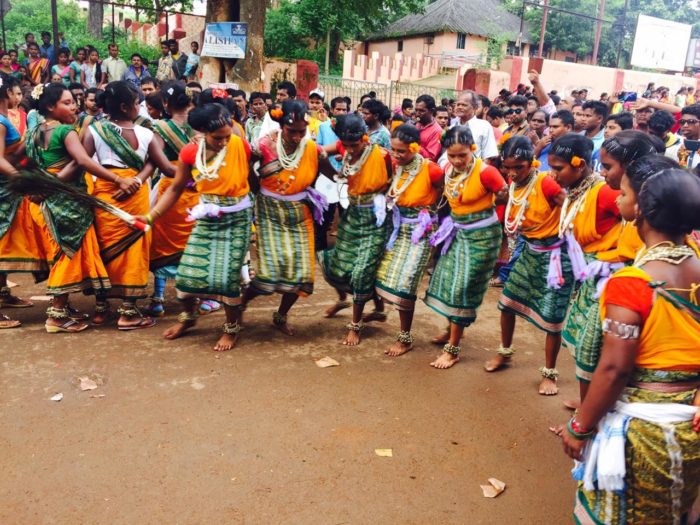A Tribal Touch To Rath Yatra At Koraput

Koraput: It is the same Lord and the same culture but the way Rath Yatra is celebrated here is different. It is worth visiting Koraput’s Sabara Srikhetra Jagannath Temple to soak in the tribal culture of the place.
For the first time this year, Koraput rolled out three chariots for the sibling deities.
Also Read: Koraput ‘Breaks Away’ From Decades-Old Rath Tradition
Hordes of tribal devotees from far-flung villages descend at Koraput during the Rath Yatra. Special invitations are sent to the villages much in advance. Among the tribals who take active part in the Rath Yatra are Bonda, Kondh and Paraja.
On the day the chariots are pulled, they dance around the chariot as it moves. They brave hilly terrains and rickety transport just to have a glimpse of their Lord and seek his blessings.

They conduct the ritual of chhera pahanra (ceremonial cleaning of the chariot) dressed in their traditional attire. In Puri, it is conducted by Gajapati Maharaja of Puri.
The first Rath Yatra here took place on July 12, 1972. That is also when the first chhera pahanra was conducted. Some old timers and temple records say that a man from the crowd was randomly invited to perform the ritual. Later, it came to be known that he was a village head and belonged to the Sabara community. Since then the practise of a tribal performing chhera pahanra continues.
Jagdish Sabar of Nandpur has never been to Puri but is a regular to Koraput. “I have been visiting Sabara Srikhetra on Rath Yatra for the past 20 years. I like being a part of the crowd and witnessing the Lord mounted on the chariot,” he said.
According to a member of the Sabara Srikhetra Management Committee (Koraput), apart from a tribal conducting the chhera pahanra, the tribal groups also actively take part in various chores of the temple, including at the temple’s kitchen, preparing bhog for the deities and cleaning the temple premises during the nine-day period of the festival.
The tribal chiefs of different villages are honoured with a Sirpa (a head gear) on the last day of the festival.

Comments are closed.